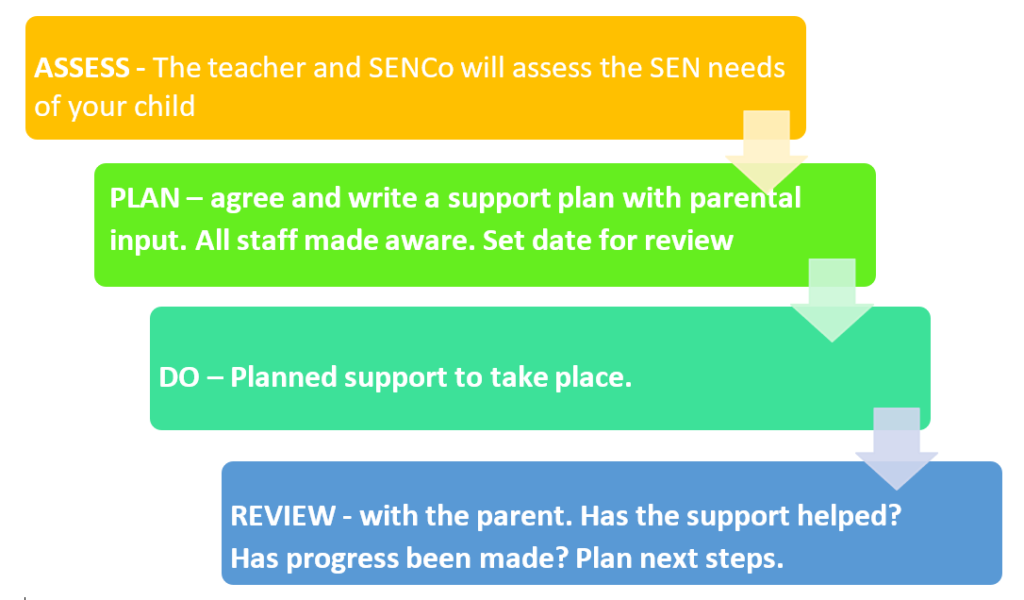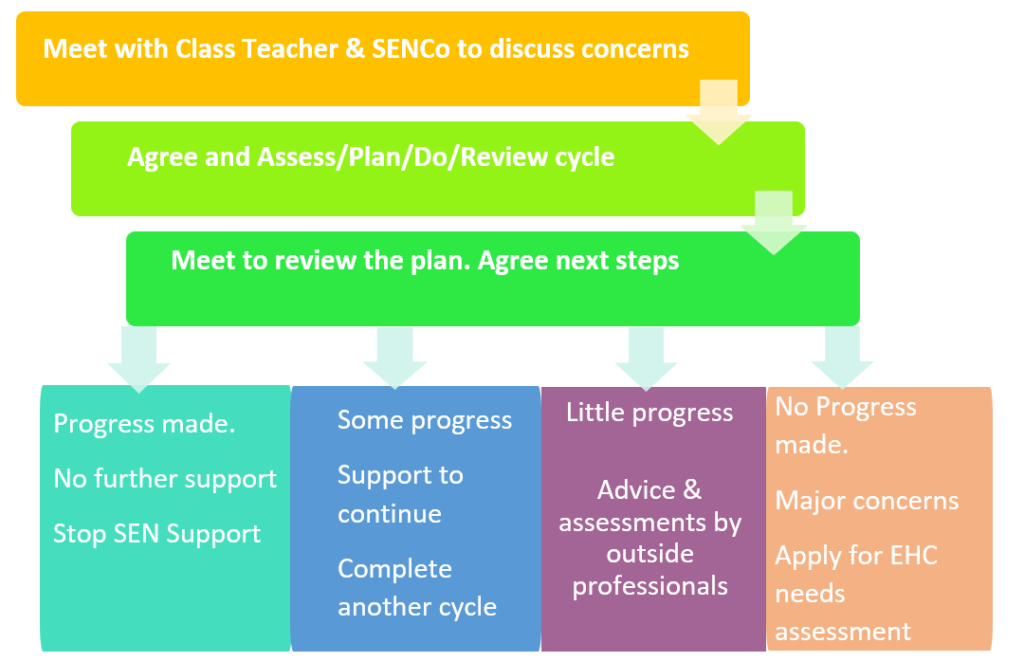The Dorset Parent Guide to support your child’s Special Educational Needs 0 to 25 Years
In any classroom, children learn at different speeds and in different ways. Teachers will plan their lessons and choose different types of lesson materials to help each child learn best.
Some children need more help than this and may have difficulty with:
A child who needs extra help in any of these areas may have special educational needs (SEN) and therefore require extra support.
Every school must have a Special Educational Needs Coordinator (SENCo). They are responsible for the SEN policy and coordination of specialist provision within the school.
If you are concerned your child has or may have SEN you can request a meeting with the Class Teacher and the SENCo.
The SEND Code of Practice says that schools should use a ‘graduated approach’, or four-part cycle (Assess, Plan, Do and, Review) to support your child with SEN. This means that the SENCO and teaching staff should:

If your child is receiving SEN support, the school should draw up a SEN support plan, involving you and your child, focusing on the outcomes your child needs and wants to achieve and detailing how the school will help them to achieve these.
The school should give you clear information about the extra help your child is getting. The school should meet with you at least three times a year to review how your child is progressing and what the next steps will be. This should be in addition to scheduled parents’ evening meetings.
At the review meeting the next steps must be agreed:
The next step may be that the school will apply to the Local Authority (LA) for an Education and Health Care (EHC) needs assessment.
You do not need to wait for the school to do this, you can make a request for an EHC needs assessment yourself.

If you require further help or advice please contact us